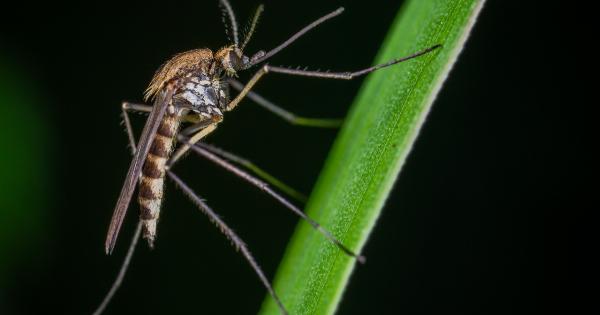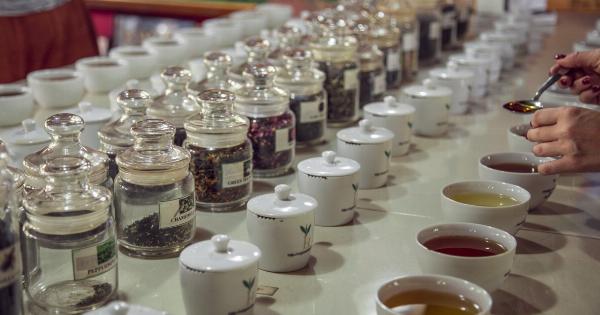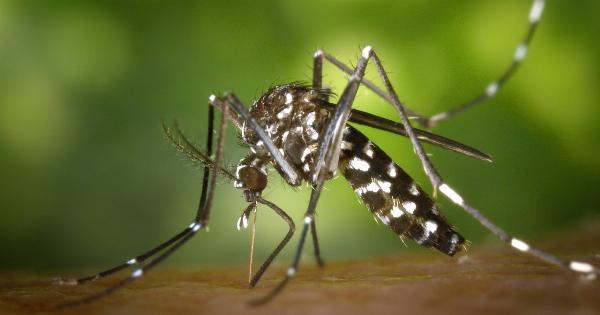As the temperatures rise, so does the presence of mosquitoes. These pesky insects not only irritate us with their itchy bites, but they can also transmit dangerous diseases such as malaria, dengue fever, and Zika virus.
While there are many chemical mosquito repellents available in the market, some people prefer natural alternatives to keep mosquitoes under control. One effective and eco-friendly approach is to incorporate mosquito-repellent plants into your garden or outdoor space.
In this article, we will explore five plants that possess natural repellent properties, making them excellent additions to your summer landscape.
1. Citronella
Citronella is perhaps the most well-known and widely used natural mosquito repellent. It is derived from several different species of grass, including Cymbopogon nardus and Cymbopogon winterianus.
Citronella plants are known for their strong citrus-like fragrance, which masks the scents that mosquitoes find attractive. The essential oil extracted from these plants contains citronellal, geraniol, and citronellol, which are all effective in reducing mosquito activity.
You can easily grow citronella plants in pots or in your garden. They thrive in warm climates and require plenty of sunlight and well-draining soil.
Citronella can be found in many forms, such as candles, torches, and even as an essential oil for topical application.
2. Lavender
Lavender is not only a beautiful addition to any garden but also an excellent mosquito repellent. Its distinctive fragrance is loved by humans but disliked by mosquitoes.
The strong scent of lavender masks the odor of potential mosquito attractants, making it hard for mosquitoes to locate their targets.
Growing lavender plants is relatively easy, as they are drought-tolerant and prefer well-drained soil and full sunlight. They can be planted in garden beds, pots, or even used in decorative arrangements around your outdoor living spaces.
Additionally, dried lavender can be used to make potpourri or sachets to place in drawers and closets to keep mosquitoes away indoors.
3. Marigold
Marigold plants are not only beautiful and vibrant, but they also possess natural mosquito-repellent properties. Marigolds contain a compound called pyrethrum, which is used in many commercial insect repellents.
The scent of marigolds is particularly effective in repelling mosquitoes and other insects, making them a great addition to your mosquito control arsenal.
Marigolds are easy to grow and are suitable for both flower beds and containers. They require well-draining soil and should be placed in areas that receive full sun.
Additionally, marigolds can attract beneficial insects such as ladybugs and lacewings, which help keep other destructive pests at bay in your garden.
4. Rosemary
Rosemary is a popular herb that adds flavor to a variety of dishes, but it is also a potent mosquito repellent. The strong aroma of rosemary masks the scent of potential mosquito targets, making it harder for mosquitoes to find their next blood meal.
Simply crushing the leaves of a rosemary plant can release its natural oils and enhance its mosquito-repellent properties.
Rosemary can be grown in pots or directly in your garden. It prefers well-draining soil and requires at least six hours of direct sunlight daily.
Apart from its mosquito-repellent properties, rosemary is an attractive plant that can add beauty and fragrance to your outdoor space.
5. Basil
Basil is not only a versatile herb used in culinary delights but also a natural mosquito deterrent. The strong aroma of basil plants confuses mosquitoes and makes it difficult for them to locate their targets.
There are several varieties of basil, but the most effective mosquito repellent is believed to be the lemon basil variety.
Basil plants are relatively easy to grow and can be kept in pots or planted directly in the ground. They prefer well-draining soil and require consistent watering and plenty of sunlight.
Additionally, basil can be harvested and used in various dishes, making it a practical and beneficial addition to any garden.
Conclusion
By incorporating these mosquito-repellent plants into your garden or outdoor space, you can naturally reduce the presence of mosquitoes while adding beauty and fragrance to your surroundings.
Remember to place these plants strategically around your living areas and consider crushing their leaves to release more of their natural oils for increased effectiveness. Embracing natural methods, such as using mosquito-repellent plants, not only helps protect the environment but also ensures a safer and more enjoyable summer outdoors.






























